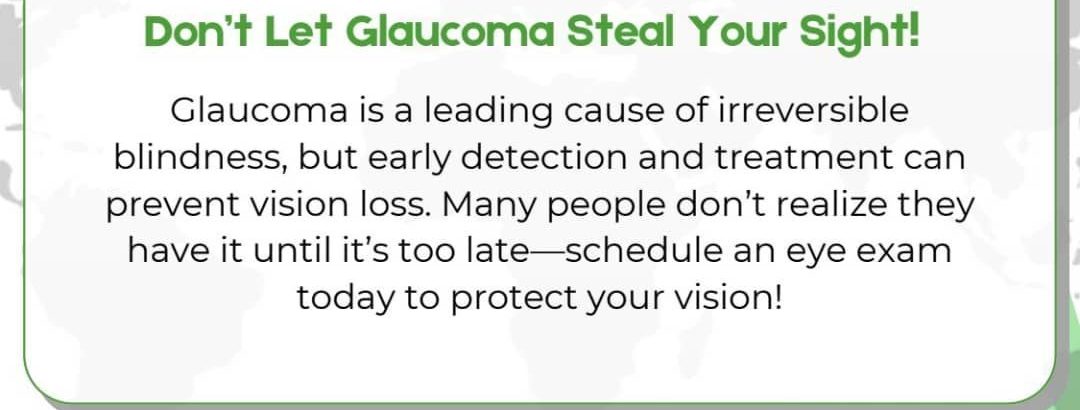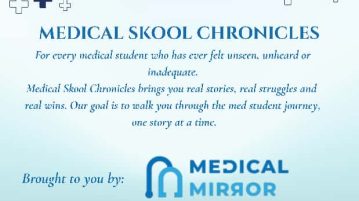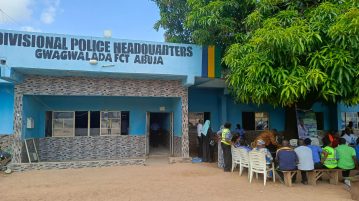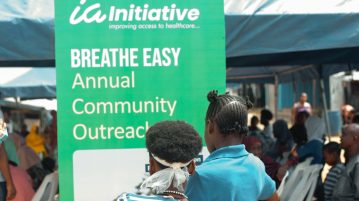For healthcare professionals, practitioners and officials in the field of eye care, March 9th till 15th marks World Glaucoma Week, with the World Glaucoma Day being celebrated on March 12th. Initiated by the World Glaucoma Association, this week is set aside to bring patients, eye care providers, health officials and the public together in organizing activities and raising awareness about glaucoma worldwide.
According to a report by the World Health Organization (WHO) on vision, there are over 80 million individuals worldwide who suffer from glaucoma. In Nigeria, glaucoma stands as a primary cause of irreversible blindness, with a prevalence ranging between 4.6% and 5.02%. The occurrence of blindness is documented among one in five persons with glaucoma. Notably, the prevalence of glaucoma escalates among individuals aged 80 and above, particularly within the Igbo ethnic group and urban residents.
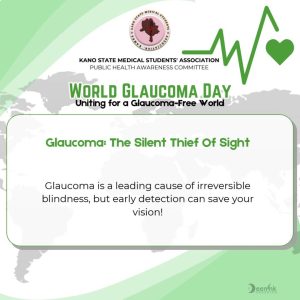
Alarmingly, about 90% of glaucoma cases in Nigeria remain undiagnosed or untreated, often leading patients to seek medical attention only when already visually impaired. While among those seeking care, treatment modalities and outcomes exhibit gender disparities, which could be attributed to their different anatomical and genetic makeup, health seeking behaviours and socioeconomic capabilities.
Women outnumber men in glaucoma cases worldwide. In the United States, women had higher incidences for all types of glaucoma treatments (i.e., glaucoma drainage, laser and other surgeries) except for prescription drug usage compared to men.
Given the high figures and unpleasant outcome of undiagnosed and untreated glaucoma in the nation, enhancing awareness and early detection through concerted effort is imperative to mitigate the incidence of glaucoma-induced blindness among the population.
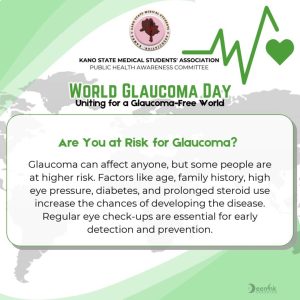
In line with this year’s theme – “Uniting for a Glaucoma-Free World, See the Future Clearly” – Dr. Chimeziri Anderson, President, Nigerian Optometric Association (NOA) seized the moment to address the optometry community in Nigeria. He stressed the significance of the World Glaucoma Week and how it can be effectively leveraged to propagate awareness nationwide.
Through his World Glaucoma Week Message to all optometrists in Nigeria and the diaspora, he stated, “As we confront the escalating prevalence of glaucoma, it behooves us to contemplate actionable strategies to tackle this issue effectively and empower patients to advocate for themselves. Collaborating with fellow eye care providers is paramount to ensure comprehensive care for glaucoma patients”. Likewise highlighting that, “Optometrists, as adept case finders, play a pivotal role in early glaucoma detection through validated innovative screening methods delineated in the National Guidelines for Glaucoma Management“.
The Nigeria Optometric Association (NOA) advocates for a patient-centric approach in glaucoma treatment, emphasizing the imperative for optometrists and ophthalmologists to collaborate seamlessly. ~ Dr. Chimeziri Anderson, OD (ABSU), MPH (uct), PGD (uL), FAAO (America), FNCO (Nigeria), FNOA. President, NOA 2025.
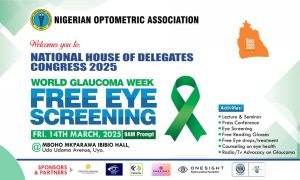
Dr Anderson further gave a call to action, “I implore each one of us to introspect on the impact we can individually wield within our state chapters, districts, and communities, and unite during the Glaucoma Awareness Week to effectuate the necessary change. Let us dedicate this week to fervent endeavours aimed at bolstering community eye health promotion and facilitating efficacious referrals, thereby envisioning a future where every Nigerian enjoys optimal vision”.
Conclusively, he, on behalf of NOA, urged all state chapters to form state glaucoma associations or integrate with existing glaucoma associations in their states, as a way of combining efforts to make patients the center of attention in this fight against invisible glaucoma.
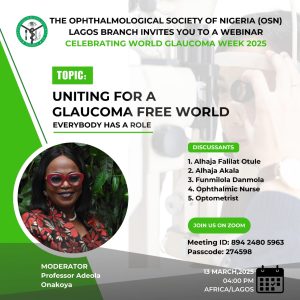
Also, during the webinar titled “United for a Glaucoma Free World – Everyone has a role”, by the Ophthalmological Society of Nigeria (OSN) Lagos Branch in commemoration of the ongoing week, the moderating speaker, a renowned ophthalmologist – Prof Adeola Onakoya – reiterated the importance of regular eye screening, family involvement and follow up to reduce the number of people needlessly going blind. She also highlighted the significance of integrating counsellors to ensure patient compliance and adherence to medications, patient acceptance of diagnosis and their good understanding of treatment and outcome.
Aside from the use of medications (which are expensive) and surgical intervention (with a very low rate because people don’t want to have surgery due to fear), she mentioned some lifestyle modifications that help in preventing and treating glaucoma. These include, adding green vegetables to diet, reducing carbohydrate intake, ensuring weight control, exercising (as simple as walking), managing stress and other medical conditions (like hypertension and diabetes). These lifestyle changes help to lower the body blood pressure and the pressure in the eye.
50% of those with glaucoma, have normal pressure in their eyes. Therefore, during screening, not only should the intra-ocular pressure be measured, but also the patient’s blood pressure. Also, patients should be counselled to continue treatment regardless of the symptoms and outcome they are experiencing. ~ Prof Adeola Onakoya, Professor of Ophthalmology, Head of Glaucoma Services, College of Medicine University of Lagos (CMUL) & Lagos University Teaching Hospital (LUTH)
In her recommendations, she stated the need for advocacy to pharmaceutical industries to manufacture locally, offer fixed-dose combination drugs and reduce the cost of glaucoma eye drops. Additionally, she emphasized the need for government rebate on glaucoma drugs and private sector collaboration on management, follow-up, and prompt referral of patients. Furthermore, she highlighted the importance of research, particularly in understanding how ethnicity and genetics relate to glaucoma.
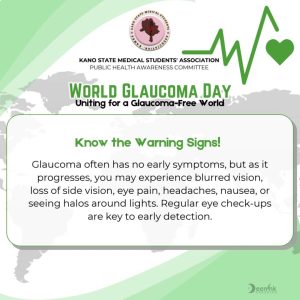
An Opthalmic Nurse in LUTH, who was part of the discussants on the webinar – Nurse Morenike Fasanya – also enlightened participants on the role of nurses in the care of patients with glaucoma. She stated, “Our role is majorly health education. During which we teach adherence to their drugs, personal hygiene, family involvement and check-up. We encourage them to bring their families along for follow up, so they can be screened as well, and we counsel them on how to care for the glaucoma patient, especially the elderly ones. Also, during their follow up visits, we carry out non-invasive tests (like optical coherence tomography (OCT) and central visual field (CVF)) to monitor their treatment and progress”.
For every 10 persons screened at our outreach today, 4 to 5 of them were harbouring glaucoma. Just as you service your car, service your eyes. Don’t wait until you are not seeing before you go to see your eye doctor. Go for your regular eye check-up at least every 6 months to avoid late presentation. Blindness is far more expensive than paying for medications. ~ Prof Adeola Onakoya, Professor of Ophthalmology, Head of Glaucoma Services, CMUL/LUTH
Summarily, prevention of progression to blindness can be achieved through early detection and regular eye screening by primary eye care provider. Regular eye examinations should begin at age 35, conducted by an optometrist or ophthalmologist who will check the inside of the eyes, in addition to measuring pressure. Community health workers and primary healthcare providers can also utilize The Nigeria Glaucoma Guideline and Toolkit to provide effective eye care and screening services.
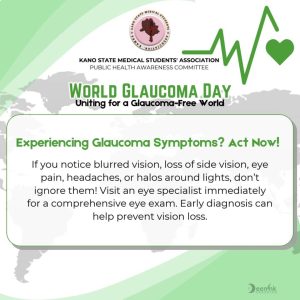
Editor’s note:
This report article was collated and written by Medical Mirror Correspondent, Mary O. Agoyi Awoniyi.

